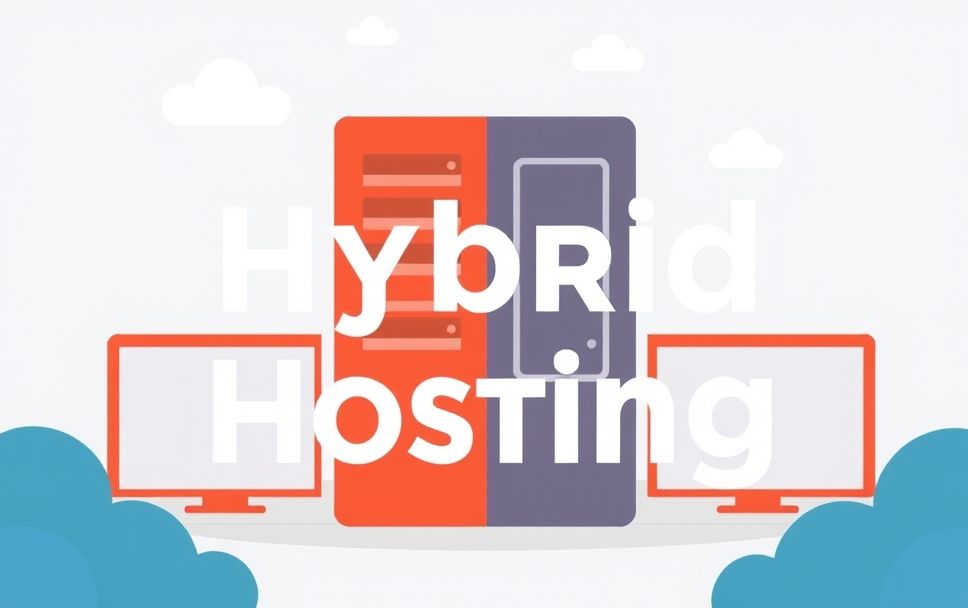Understanding Hybrid Hosting
Hybrid Hosting is a web hosting solution that combines the best features of both dedicated servers and cloud hosting. This approach allows businesses to enjoy the reliability and performance of dedicated resources, while also leveraging the scalability and flexibility of cloud technologies. In essence, hybrid hosting provides a tailored environment that can adapt to varying workloads and requirements.
The Importance of Hybrid Hosting in Today’s Digital Landscape
As digital transformation accelerates, businesses are increasingly looking for hosting solutions that can accommodate their growing needs without compromising performance or cost. Hybrid hosting emerges as a crucial player in this landscape, providing a unique balance between on-premise infrastructure and cloud capabilities. By adopting a hybrid hosting model, organizations can:
- Optimize resource allocation for better performance.
- Scale resources on-demand according to traffic fluctuations.
- Enhance security by segregating sensitive data on dedicated servers.
- Reduce costs through efficient usage of cloud resources.
Key Features of Hybrid Hosting
To fully appreciate the value of hybrid hosting, it’s essential to understand its key features. Below are some crucial aspects that define hybrid hosting solutions:
- Resource Allocation: Hybrid hosting allows businesses to allocate resources dynamically based on current needs. This means that during peak traffic times, additional resources can be drawn from the cloud, ensuring optimal performance.
- Flexibility: With hybrid hosting, companies can mix and match resources from both dedicated servers and cloud environments. This flexibility enables businesses to tailor their hosting solutions to meet specific operational requirements.
- Enhanced Security: Sensitive data can be hosted on dedicated servers, while less critical applications can run on the cloud. This separation minimizes risks and bolsters overall security.
- Cost-Effectiveness: By utilizing a hybrid model, businesses can avoid the costs associated with maintaining an entirely dedicated infrastructure. Resources can be scaled up or down based on demand, leading to significant cost savings.
Real-World Applications of Hybrid Hosting
Hybrid hosting is not just a theoretical concept; it has practical applications across various industries. Here are a few examples:
- E-commerce Platforms: During peak shopping seasons, such as Black Friday or holiday sales, e-commerce sites can experience a surge in traffic. Hybrid hosting allows these businesses to quickly scale up their resources to handle increased user activity without compromising site performance.
- Content Management Systems (CMS): Organizations using CMS platforms like WordPress can benefit from hybrid hosting by hosting their main site on dedicated servers for security and speed, while utilizing cloud resources for media storage and content delivery.
- Software Development: Development teams can use hybrid hosting for staging and production environments. They can develop applications in a cloud environment and deploy them on dedicated servers, ensuring performance and security.
- Big Data Analytics: Companies that analyze large datasets can leverage hybrid hosting to store sensitive data on dedicated servers while using cloud resources for processing and analytics, allowing for efficient data handling.
How to Implement Hybrid Hosting in Your Business
Implementing hybrid hosting in your organization can be a straightforward process if you follow these steps:
- Assess Your Needs: Determine what resources your business requires, including bandwidth, storage, and security.
- Choose a Provider: Look for hosting providers that offer hybrid solutions tailored to your specific requirements. Evaluate their performance, support, and pricing.
- Design Your Architecture: Work with your IT team to design a hybrid architecture that balances dedicated and cloud resources. Ensure that security protocols are in place.
- Monitor and Optimize: Once implemented, continuously monitor the performance of your hybrid hosting solution. Make adjustments as necessary to optimize resource usage and costs.
Related Concepts in Web Hosting
To gain a deeper understanding of hybrid hosting, it’s helpful to explore related concepts:
- Cloud Hosting: A service that uses virtual servers hosted in the cloud, allowing for scalability and flexibility.
- Dedicated Hosting: A hosting model where an entire server is allocated to a single client, providing maximum control and performance.
- Virtual Private Server (VPS) Hosting: A type of hosting where a physical server is divided into multiple virtual servers, offering more control than shared hosting but less than dedicated hosting.
- Content Delivery Network (CDN): A network of servers that deliver web content to users based on their geographic location, improving load times and performance.
Conclusion: The Practical Benefits of Hybrid Hosting
In conclusion, hybrid hosting offers a flexible, scalable, and cost-effective solution for businesses looking to optimize their web hosting environment. By combining the strengths of dedicated and cloud hosting, organizations can ensure high performance, enhanced security, and efficient resource allocation. As you consider your hosting options, think about how hybrid hosting can be tailored to meet your specific needs, allowing your business to thrive in today’s competitive digital landscape.
Reflect on how you can implement hybrid hosting in your business operations today. Whether you’re a developer, a server administrator, or a business owner, understanding and leveraging this hosting model can lead to significant improvements in your web presence.









